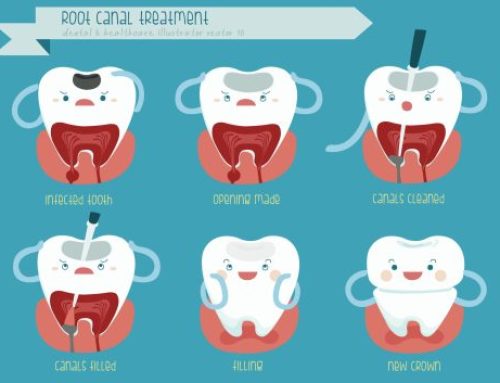Urgent Need of Root Canal Therapy: Why Timeliness Is Critical
If your dentist has recommended root canal therapy as the solution to your infection in a tooth, you might experience anxiety and worry. While delaying can seem like an attractive option at first, waiting can have serious and expensive repercussions for both oral and overall health – knowing what this procedure involves, as well as what happens if treatment is delayed, is key if you want to save both the tooth itself and avoid more complex health issues later.
An infected tooth pain can be an important indicator that something serious is wrong, and it’s crucial that people understand that its source is infection rather than treatment itself. While many fear root canal procedures because they cause discomfort, modern anesthesia and dental technology have made root canal procedures much less painful than previously. Their aim should be to address the source of discomfort so you can return to living pain-free!
Root canal treatment is an efficient and common dental procedure used to save a severely infected or damaged tooth. Each tooth contains soft tissues called pulp that contain nerves, blood vessels, and connective tissue; when exposed to cracks or cavities or repeated dental procedures, bacteria can invade this pulp and cause it to become infected, resulting in a painful infection that must be eliminated in order to save its viability. A root canal removes any such infected pulp while cleaning its inner chamber and sealing off the root to prevent future infections.
An infection in your tooth is a progressive issue that will not heal on its own. It begins as a bacterial invasion of its pulp and then spreads down through root canals into the jawbone itself; pain may come and go, but infection remains constant and worsens over time if treatment is delayed further, possibly resulting in irreparable damage both to the tooth itself as well as surrounding bones and tissue.
Root Canal Treatment: An Efficient Way of Saving Teeth
Root canal procedures may seem intimidating at first, but with modern dental techniques and local anesthetics, the experience should be no more painful than getting regular fillings. HPS Dental’s team begins the procedure by taking an X-ray to assess any damage before providing local anesthetic to completely numb the affected tooth’s region and ensure no pain during this procedure.
Once the area is numb, a protective rubber sheet will be wrapped around each tooth to keep it free from saliva and bacteria. Next, we create an access hole at the top of the tooth to reach the infected pulp chamber and root canals, and then use very fine instruments to carefully extract infected material, such as pulp and nerve tissue. After removal is completed, we use an antiseptic solution such as sodium hypochlorite in order to thoroughly disinfect every inner chamber in which our infected material was present.
Once we have eliminated an infection, we use biocompatible gutta-percha material to completely seal off your canals from further infection. If the infection is severe, we may place a temporary filling and ask you to return within one week so we can place a permanent one. Once sealed permanently, crowns will usually be applied overtop of them to further strengthen them against fracture and restore strength and appearance – this final step ensures your tooth stays functional for many years ahead.
As our primary objective, your comfort is always our top priority. We use sophisticated tools and techniques to make the procedure as efficient and painless as possible, such as local anesthesia to numb any pain-induced nerve endings while we remove infected tissue and save your tooth.
After undergoing a root canal procedure, crown placement is an integral component of successful restoration. Without its blood supply, the tooth can become more fragile and likely to fracture than before; dental crowns serve as an invaluable protective shield, covering and strengthening all parts of the tooth for normal chewing and biting operations. A properly restored tooth after receiving a root canal procedure can last a lifetime when done right – making a root canal an invaluable procedure that saves lives!
Procrastinating Root Canal Treatment Increases Serious Risks
Fear or anxiety may cause you to postpone scheduling a root canal appointment, but postponing can turn a manageable dental issue into an even greater health crisis. Pain from tooth infections may temporarily lessen, but that does not indicate that they have gone away completely; rather, it indicates that some nerve cells have died inside the tooth and spread infection into nearby structures.
An unpleasant side effect of postponing root canal treatment is dental abscesses, which are painful accumulations of pus at the tip of your tooth roots caused by infection and can be extremely uncomfortable to deal with. They can result in swelling, fever and throbbing jaw pain; you may even observe fistulae appearing as signs that drainage has started. An abscess requires immediate and emergency attention since infection could spread into the surrounding jawbone tissue, leading to significant bone loss that threatens the stability of other teeth and potentially irreparably damages their dental structure permanently.
Furthermore, persistent tooth infections can quickly lead to more serious systemic issues. The bacteria from an infection can multiply and enter your bloodstream, potentially spreading throughout your body and leading to sepsis, an illness that damages organs. Although rare, sepsis remains a life-threatening risk that emphasizes the importance of prompt dental care, with tooth infections serving as gateways for bacteria to access other areas of the body. This can lead to symptoms such as fever, fatigue, or general malaise, indicating that the infection has spread further than intended.
Delaying root canal treatments will have severe and irreversible repercussions, ultimately leading to tooth loss. If an infection continues for too long, its damage to both tooth structure and surrounding bone may become too extensive to repair; in such instances, it may become unsalvageable and require full extraction, which then necessitates more complex solutions, like dental implants or bridges to restore your smile if your natural tooth can no longer be saved. Preserving natural teeth should always be the top priority, yet delaying root canal treatments makes this impossible.
At HPS Dental, Your Comfort and Health Are Our Priorities
Delaying a root canal should never be your decision; our team at HPS Dental strives to make you feel at ease in our care by employing modern, pain-free techniques. We prioritize saving natural teeth whenever possible as this provides greater benefit for oral health.
Our practice utilizes cutting-edge technology, including digital X-rays and endodontic instruments, to perform root canal procedures with precision and efficiency, thereby increasing their success rate and making them significantly less invasive than in previous decades. We take great pride in staying up-to-date with the latest advancements in dental care to provide you with optimal care.
Our experienced and friendly team is on hand to guide you through every step of the process, answering all of your queries and explaining each procedure thoroughly so you feel completely at ease with what is happening. Rest easy knowing you are in safe hands with a team who have extensive training in performing root canals as well as a genuine concern for your well-being.
If you have been told you need a root canal, don’t be intimidated; call us immediately so we can answer your questions, ease any anxieties, and provide expert care to protect your smile.
Get in touch with HPS Dental now at (248) 652-0024 to make an appointment and give yourself the gift of a healthy smile. Your smile and health deserve it.






